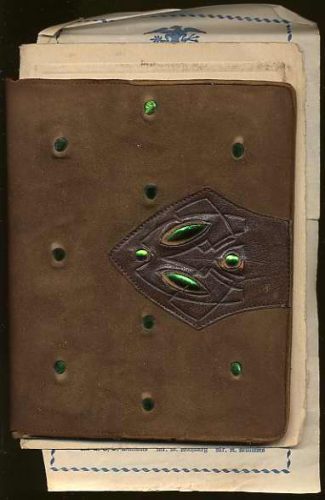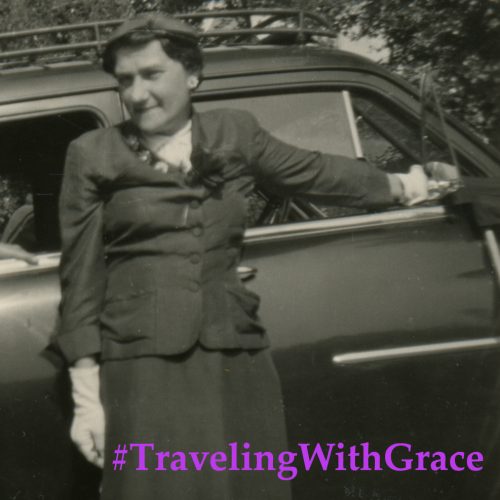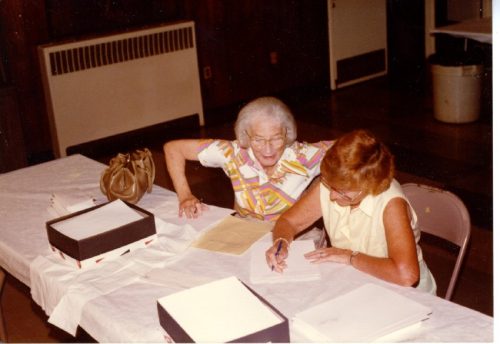Mental Health Monday: Writing

We are not mental health professionals. If you are feeling overwhelmed with emotions like anxiety or depression, or they are impacting your daily life, please reach out to professionals who can help you. If you need immediate help, use the National Suicide Hotline, 1-800-273-8255, which offers online chats as well. Jewish Community Services also offer help for people experiencing emotional crises.
We aim to provide some tips and guides to help those who are self-isolating, and to connect with our JMM community. These ideas might not work for everyone, but we hope that by starting the conversation about mental health, we can inspire you to take a moment to breathe and reflect on what you need today to feel good.
~Talia Makowsky, JMM Visitor Services Coordinator
Welcome back to our Mental Health Monday series. I hope you took some time last week to situate your workspace, if you’re working from home, or at least found some ways to make your living space more comfortable and cozier. Today, we’re looking at a technique to help cope with anxiety and stress and having a nice workplace will be helpful. We’re going to discuss the benefits of writing.
Writing, whether in a physical notebook or in a word processor, is a very important skill to have. Having studied writing in school, I can give you all the reasons why having basic writing skills is important as an adult, to communicate and express yourself to others. But we’re going to focus on the personal benefits that comes with writing.

Writing is not a new form of therapy and stress-relief. Many people have used writing to process emotions and thoughts about their days, through journaling. However, writing can have a profound impact on an individual, as various medical studies have shown. This article from Monitor in 2002, written by Bridget Murray, cites numerous studies done by researchers that show the benefit of writing to process trauma and help heal various conditions. In one study, 107 asthma and arthritis patients wrote for 20 minutes on three consecutive days. 71 of them wrote about the most stressful moment of their lives, while the rest wrote about their daily plans. Four months after the exercise, 70 of the patients in the stressful-writing group showed improved clinical evaluations. They also improved more and deteriorated less than those who had wrote about neutral topics. There are many more studies showing the benefits of journaling and working through your feelings using writing. Just note, as this article points out, that writing about sensitive moments can cause people to feel raw and vulnerable, and writing about the same trauma over and over, without putting thought into understanding the moment and figuring out how to move on, will not help an individual.

Journaling is not the only way to use writing to develop skills and process feelings. While this article from Teachers and Writers Magazine, is focused on creative writing for students, many of the benefits can be applied to adults as well. Creative writing helps in the search for identity, fosters artistic expression, clarifies thinking, and helps to entertain. All of these features, I believe, are important, as I figure out where I find myself in this new reality and try to keep myself occupied when I’m not working. And spending a few minutes each morning doing a quick writing prompt definitely helps me to center my thoughts and clear my head for my workday. And others see the benefit of creative writing for adults. Jenni Ogden, Ph.D. wrote an article about her own experiences as a fiction writer and neuroscientist and how she believes that writing can help Baby Boomers who are experiencing memory trouble.
Hopefully you agree that writing can be incredibly beneficial as we navigate this scary time. To make it a little less intimidating, here are some tips to get started.
1. Have a set writing place – Much like last week, having a regular place where you write, whether it’s at the dining table, outside, or on the couch, helps your brain to recognize that you are in “writing mode”. For added comfort, have your writing place somewhere where you can see outside, light a candle, or have your cup of coffee or tea nearby. Also know that you can write in a physical notebook or on a computer, whatever works best for you. I just encourage you to try out both methods to see how they feel.
2. Write a little bit every day, or almost every day – Suddenly jumping into writing can be intimidating, especially for folks where writing doesn’t come easily. Don’t force yourself to write for hours at a time. Dedicate ten to thirty minutes, maybe time you would have spent commuting to work, to writing just a little bit, and try to write around the same time each day. This is useful whether you’re journaling or writing creatively, as it helps you form the habit of writing.
3. Don’t start with a blank page. – Starting with a blank page can be really difficult, so do something to make it less blank. If you’re journaling, start with just a simple list of things, such as what you ate that day or what you smelled. If you’re writing creatively, find a writing prompt to put at the top of the page, just to get you started. (I personally like first-line prompts that give you the first line to start with. This website has a whole slew of them, plus more creative writing prompts. And if you’re journaling and looking for a writing prompt, check this website out. There are lots of different writing prompts to fit whatever your writing style is.)
4. Once you start, don’t stop writing! – This can be very difficult when you’re first figuring out writing regularly, but it’s very important to keep your pen (or your fingers on the keyboard) moving! If you have set a time for yourself to write, for ten to thirty minutes, keep moving the whole time. If you run out of things to write about, write “I’ve run out of things to write about.” Start doodling in the margins or writing down words you think are funny. Just keep moving, to keep your brain engaged. And most of the time, this will help you get back on whatever thought you lost or help you to figure out the next part of your story.
Remember, writing for yourself is an experiment and you don’t have to share what you write with anyone. You’re not writing a novel to publish, you’re just trying to make time for yourself, to process and relax. And if it doesn’t work for you, don’t force it! But I implore you to give it a try. And if it turns out that you’re enjoying the writing process, think about gathering a group of friends together to create a writing circle! Share short stories or narratives with each other and gather about once a week to give each other feedback about your writing. This can be a great way for you to connect with your friends while we all practice social distancing.

If writing isn’t for you, don’t worry, we’ll be back next week with another Mental Health Monday. As always, please send us any suggestions for topics or questions you have. We’re here to help each other and talk about how we can get through this moment together.
